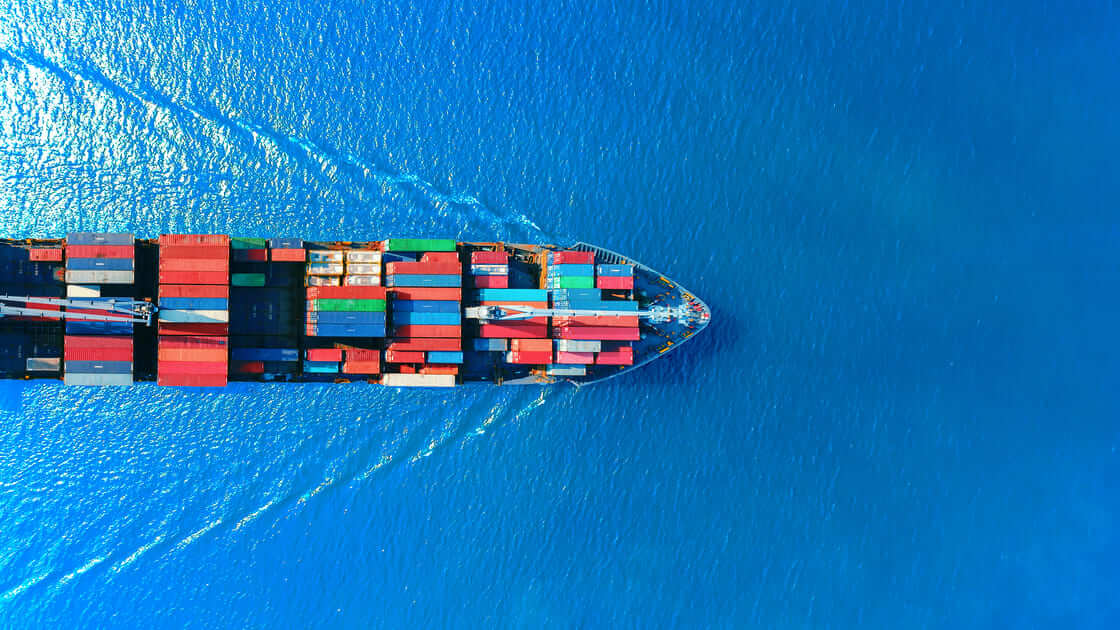As a major trade hub, Singapore strictly monitors goods entering and exiting the country. All goods entering the country are subject to GST, and an additional duty is chargeable on dutiable goods.
While there may be circumstances where imported goods only require GST and/or Duty permits, the Singapore Customs maintains a list of controlled goods that require additional import or export permits before they can be cleared by the Singapore Customs¹.
If you’re running a Singapore business that is heavily involved in trading, you must understand the import and export regulations to ensure smooth delivery or receipt of your goods and your business.
Your business may also need to handle international payments. Having a multi-currency business account, like Wise Business, offers a convenient way to pay for supplies and receive payments from clients in over 40+ currencies.
Understanding import and export licenses in Singapore
All imported goods have to be declared and will be subject to GST. In addition, dutiable goods such as intoxicating liquors, tobacco, motor vehicles and petroleum products are subject to duty payment. GST and duty payments are not levied on goods exported from Singapore.
That said, you should note that controlled goods will require an additional import or export license.
What is an import license?
An import license or import permit is a form of authorisation from the relevant Competent Authorities (CA) in Singapore. All controlled goods will require an import license before they can be imported into the country, to ensure that they adhere to Singapore’s regulations.
To find out if your goods are under the list of controlled goods, Singapore businesses can check the HS/CA Product Code Search Engine that is maintained by the Singapore government². You will need to apply for the right licensing with the relevant CA before attempting to import your goods into Singapore.
You will be required to provide the import permit on arrival of the goods to Singapore.
Failure to produce an import licence could result in a penalty under the Customs Act, which could result in a fine or prosecution, depending on the severity of the penalty³.
What is an export license?
Likewise, an export license or export permit is an authorisation from the relevant Competent Authorities (CA) in Singapore. All controlled goods will require an export license before they can be exported into the country.
Singapore businesses can check if their items fall under the controlled goods for export via the HS/CA Product Code Search Engine² as well.
Failure to produce an export licence could result in a penalty under the Customs Act, the Regulation of Imports and Exports Act (RIEA), which could result in a fine or prosecution, depending on the severity of the penalty⁴.
Do you need an import or export permit for your goods?
For smooth import of goods, Singapore businesses should ensure that they understand the process and have all the requirements on hand.
You should always check if your goods are exempt from Import Permits by referring to the HS/CA Product Code Search Engine for the latest status.
Goods that do not require an import permit in Singapore
In general, the following categories of goods do not require an import permit:
- Non-controlled or Unprohibited goods with total Cost, Insurance and Freight (CIF) value of under 400 SGD
- Goods imported for personal use (excluding intoxicating liquors or tobacco), not intended for sale or trade
- Goods brought into a free trade zone (FTZ)
The following goods also do not require an import permit:
- Intoxicating liquors below 10L and tobacco below 0.4kg
- Investment precious metals below 0.5kg for personal use
- Petroleum of an amount below 1L in a spare container of a motor vehicle
- Dutiable and non-dutiable goods imported by postal or courier service, unless required by Singapore Customs
- Non-controlled goods imported by post, including investment precious metals
- Bona fide trade samples, specimens for analysis or test, and gifts, excluding intoxicating liquors and tobacco, of a total value not exceeding 400 SGD
- Freight shipping containers for the international conveyance of goods
- Human remains, human bones or cremated ashes
Goods that require an import permit in Singapore
It is safe to assume that all other goods not mentioned above require an import permit, as GST and/or Duty payment will be required. At the very least, you’ll require an IN-Payment GST permit from Singapore Customs.
But take note that you may require additional Import Permits, depending on the purpose of your imports, some examples include storage, exhibitions and re-exportation. These can be determined by referring to the HS/CA Product Code Search Engine.
Goods that do not require an export permit in Singapore
You may not require an export permit if you are exporting goods such as⁵:
- Parcel posts
- Documents
- Personal items
- Trade samples, specimens for analysis or test, and gifts, excluding intoxicating liquors and tobacco, of a total value not exceeding 400 SGD
- Goods exported by air, not exceeding 1,000 SGD in total value
- Locally sourced stores loaded for use on board a vessel or aircraft
Goods that require an export permit in Singapore
A Singapore Customs export permit will be necessary for the export of goods under these categories⁶:
- Dutiable goods from licensed warehouses
- Goods from bonded warehouses
- Goods under the Temporary Export Scheme
- Re-export of goods previously imported under the Temporary Import Scheme.
Whether your business imports goods for sale in Singapore or abroad, working with international partners often means making cross-border payments. Here’s how a Singapore e-commerce company saved over SGD 20,000 on their international payment process.
| 🚀 Real Business Stories: How Novelship saves time and money when paying overseas suppliers |
|---|
| Novelship is a fast growing e-commerce platform for sneakers, apparel and collectibles. Founded in Singapore in 2018, the company quickly discovered that paying suppliers through a bank can be time consuming and expensive. SWIFT telegraphic transfers could take several days to arrive, and the exchange rate available from the bank included a markup or spread - an extra fee. This pushed up the cost of sending a payment overseas, and ate into business profits. Since 2021, Novelship has used Wise Business to make paying invoices and international suppliers easier, cheaper and more efficient. It’s also a speedy process, which means the sellers and suppliers who use Novelship are happy too - there’s no waiting around for a SWIFT payment to be deposited, as supplier payments are quickly processed and received around the world. ➡️ Read how Wise Business helped Novelship grow its ecommerce business globally (and more profitably) |
Types of import and export permits and their applications
During your permit application process, you may come across various types of permits and lingo that could be confusing. Here’s a quick rundown of what they are:
IN-Payment GST and IN-Payment DNG Permits in Singapore
As mentioned above, all goods entering Singapore are subject to tax in the form of GST. Dutiable goods will be subjected to additional duty payments. You will need to submit the details of your imported goods and make the necessary GST and/or Duty payments before you can receive a GST or DNG permit⁷. This will be required for the clearance and release of your goods at customs control. Failure to declare or make payment could result in a fine or penalty charge.
Cargo Clearance Permit (CCP)
A Cargo Clearance Permit (CCP) is required for the clearance of goods at Singapore Customs control, for both import and export processes. Upon successful application of an import or export permit, you will receive a CCP, which will include a permit number as well as details regarding the goods to be cleared⁸.
You can check the clearance status of your CCP thereafter, using the Permit Clearance Enquiry Service (PCES) via the Networked Trade Platform (NTP)⁹.
Prohibited Goods Permits in Singapore
Prohibited goods are not allowed to be brought into Singapore. However, you should check with the relevant Competent Authority for suitable permits if you’re importing such items for re-exportation or transhipment via Singapore.
Strategic Goods Permits in Singapore
Goods such as firearms, military equipment, goods related to nuclear, chemical and biological weapons and certain ‘dual-use’ goods for both civilian and military purposes, such as drones, transistors, thermal imaging equipment and more, are classified as Strategic Goods¹⁰. They are regulated under the Strategy Goods (Control) Act (SGCA) and require a Strategic Goods Permit that is subject to greater scrutiny and takes a longer time period of 5 to 7 days to apply.
How to apply for an import license or export license in Singapore
- Get a Unique Entity Number (UEN): You will require a UEN to apply for an Import License. Businesses registered under the Accounting and Corporate Regulatory Authority (ACRA) should be assigned a UEN. Individuals who wish to apply for an import permit may also sign up for a customs account under TradeNet using their SingPass.
- Apply for your Customs Account and Declaring Agent account: You can do this via TradeNet. If you are applying for import and export permits directly, you will need to apply for a Declaring Agent account. Alternatively, you may choose to outsource the application process to valid Declaring Agents.
- Set up an Inter-Bank GIRO (IBG) with Singapore Customs: You will be required to pay GST and/or Duty on your imported goods, and this tax payment will have to be done via GIRO. To apply for an IBG, you will need to mail a completed application form to Singapore Customs’ address physically. Alternatively, if your application is done via a third-party Declaring Agent, taxes can be paid via their IBG.
- Submit Import Permit or Export Permit Application via TradeNet: Once your accounts are set up, you can proceed to submit your application for the relevant permits.
- Pay for Import Permit or Export Permit: Payment will be collected via IBG and will be reflected as one of two codes in your customs permit: GF: Successful GIRO deduction from your account; and G7: Successful GIRO deduction from the declaring agent’s account. Should there be any issues with your GIRO payment, a ‘G1’ or ‘GX’ code will be reflected. You will be required to make a payment before you can collect your goods from customs control. Failure to do so will result in a fine or penalty charge.
- Download the Import Permit or Export Permit: Upon successful application, you can download your permit electronically for clearance of your goods.
Essential documentation for import permit and export permit applications
Before you apply for an import or export permit through TradeNet, you should have the following documentation on hand¹¹:
- Letter of Explanation or Declaration that includes
- Purpose for import/export
- Duration of import/export
- Venue where the goods will be used or the Destination of goods
- Competent Agent approval letter, if you are importing controlled goods
- Bill of Lading / AirWay Bill (BL/AWB)
- Commercial Invoice
- Packing List
- Certificate of Origins
- Any other documents as specified by Competent Agents or Singapore Customs
Additional considerations for importers and exporters
Engaging a Declaring Agent
Understanding trade regulations and the permit application process will require significant efforts, especially for new Singapore business owners. A declaring agent is an intermediary you can hire to help handle customs declarations on your company’s behalf.
They can help ensure compliance with Singapore customs’ regulations, preparation of necessary documents and the actual application of permits. Working with a reliable declaring agent can help save time and give you peace of mind.
| 💡 Likewise, managing international payments with a multi-currency account like Wise Business gives you the peace of mind that payments can be sent promptly with no hidden exchange rate markups or unnecessary conversion fees. |
|---|
When do you need a Banker’s Guarantee or Insurance Bond?
While most import and export permit applications do not require security in the form of a Banker’s Guarantee, Finance Company Guarantee or an Insurance Bond¹⁰, you will be required to provide a financial guarantee in the following circumstances¹²:
- Temporary import of goods for approved purposes
- Movement of goods under the ASEAN Customs Transit System (ACTS)
- Operation of licensed premises such as licensed warehouses and excise factories
- Any other revenue protection purposes as required by Singapore Customs
Cost and fees associated with import and export permits in Singapore
There will be fees on your import and export permit applications in Singapore¹³. Here’s a quick rundown.
How much does it cost to apply for Import Permit in Singapore?
Every TradeNet permit application costs about 3.19 SGD, which includes:
- Statutory fee: 0.90 SGD
- Processing and messaging fees: 2.29 SGD
A Certificate of Origin application on TradeNet costs about 6.29 SGD, which includes:
- Statutory fee: 4.00 SGD
- Processing and messaging fees: 2.29 SGD
How much does it cost to apply for Export Permit in Singapore?
An export permit application on TradeNet costs about 9.27 SGD, which includes:
- Statutory fee for export permit: 0.90 SGD
- One-time Messaging Fee: 0.21 SGD
- Processing fee for export permit: 2.08 SGD
- Statutory fee for Certificate of Origin application: 4.00 SGD
- Processing fee for Certificate of Origin application: 2.08 SGD
Miscellaneous Fees
Depending on the nature of your goods, you may require additional certifications that would cost between 4 SGD to 50 SGD.
If your clearance process requires the presence of a Customs officer. There will be extra charges of 29 SGD per half hour or part thereof for the service. Such services may include a survey of goods, escort of vehicles, sealing or resealing of cases and more.
Conclusion
Navigating Singapore's import and export regulations requires understanding permits, fees, and compliance, but leveraging resources like a declaring agent can streamline the process. Ensuring proper documentation and financial guarantees will facilitate smooth international trade operations.


| 💡If you're growing a global business, you'll quickly face a daunting wall of costs, complexity, and hidden fees when receiving international payments. Wise Business helps you bypass this wall, making it easy to receive money from around the world and start getting paid like a local today. |
|---|
- Obtain account details to receive payments in GBP, EUR, CAD, AUD and more for a one-time fee of S$ 99.
- Simply share your account details with customers or add them to invoices.
- Hold, send, and convert money at the mid-market rate in one account.
- Simplify customer payments with Wise request payment feature.
- Accept payments from customers and payment service providers (PSPs) like Stripe and Amazon.
- Generate payment links to request money in specific currencies.
➡️Get started with Wise Business today
Sources:
- Controlled & Prohibited Goods for Import | Singapore Customs
- HS/CA Product Code Checker | GoBusiness
- Errors and Offences | Singapore Customs
- Export Procedures | Singapore Customs
- Permit Exemptions | Singapore Customs
- Quick Guide for Exporters | Singapore Customs
- Types of Import Permits | Singapore Customs
- Sample Cargo Clearance Permit | Singapore Customs
- Circular for Introduction of New Permit Clearance Enquiry Service on Networked Trade Platform | Singapore Customs
- Strategic Goods Control List | Singapore Customs
- Permit Application Procedures | Singapore Customs
- Importing Goods Overview | Singapore Customs
- Permits, Documentation and Other Fees | Singapore Customs
Sources checked on 2 Jun 2025
*Please see terms of use and product availability for your region or visit Wise fees and pricing for the most up to date pricing and fee information.
This publication is provided for general information purposes and does not constitute legal, tax or other professional advice from Wise Payments Limited or its subsidiaries and its affiliates, and it is not intended as a substitute for obtaining advice from a financial advisor or any other professional.
We make no representations, warranties or guarantees, whether expressed or implied, that the content in the publication is accurate, complete or up to date.









